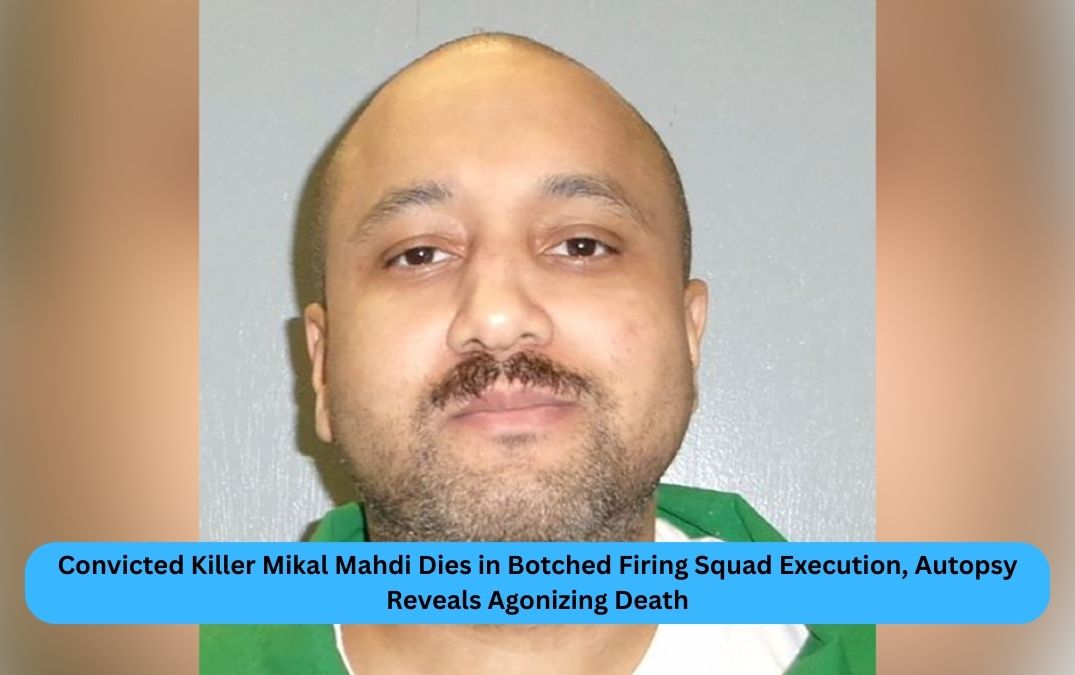Mikal Mahdi, a 42-year-old convicted killer executed by firing squad in South Carolina last month, suffered a prolonged and painful death after the execution team reportedly missed his heart, according to a new court filing.
Mahdi was put to death on April 11 in what was only the second use of the firing squad this year in the state. However, attorneys now allege the execution was severely botched, causing Mahdi to experience “excruciating conscious pain and suffering” for nearly a full minute before dying.
According to a status report filed with the South Carolina Supreme Court, Mahdi cried out and groaned after being shot, before taking his final breath. His legal team referred to the execution as a “massive botch,” citing a third-party autopsy that identified critical mistakes by the firing squad.
The autopsy, conducted by Dr. Jonathan Arden, revealed that Mahdi sustained two bullet wounds just above the abdominal area—not in the region directly over his heart. The wounds traveled downward through his torso, damaging the liver, pancreas, lung, and eventually striking his spine and ribs.
While fragments did perforate the right ventricle of his heart, they failed to destroy the organ, leaving Mahdi conscious and in pain before succumbing.
Mahdi had been on death row for the 2004 murder of Orangeburg Public Safety officer James Myers, whom he shot multiple times before setting his body on fire. Just days earlier, he had also killed North Carolina store clerk Christopher Biggs, for which he received a life sentence.
According to his attorneys, Mahdi had chosen the firing squad over lethal injection or the electric chair, believing it to be the “lesser of three evils.” However, the execution team reportedly fired only two shots instead of the required three, and misfired in their placement.
“The South Carolina Department of Corrections was expected to follow basic steps: identify the heart, mark the target, and shoot accurately,” Mahdi’s attorneys wrote. “That trust was clearly misplaced.”
This execution came shortly after the firing squad execution of Brad Sigmon in March—the first such execution in the U.S. in 15 years and the fourth since 1976, all others occurring in Utah. South Carolina lawmakers reinstated the method as a backup amid nationwide shortages of lethal injection drugs.
The disturbing details of Mahdi’s death raise serious questions about the reliability and humanity of firing squad executions and may prompt further legal challenges from other inmates on death row.












